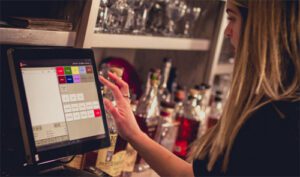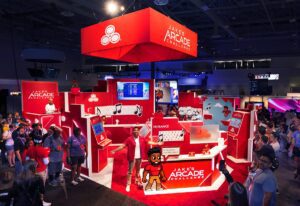
Live events and educational content are helping Toast connect with busy restauranteurs in need of technology solutions.
“We create forums to have a conversation,” says Kelly Esten, senior director of product marketing, Toast. “Educational content that speaks to industry issues is the best way to speak to our base.”
Toast, a Boston-based restaurant management platform, was started six years ago as a consumer payments app, and has evolved into offering solutions for restaurants’ front- and back-of-house operations, online ordering, inventory management, loyalty programs, payroll and more.
The biggest customer base for Toast is independent restaurants. Over 70 partners are integrated with the solution, including reservations solution OpenTable, online ordering solution Grubhub and restaurant employee scheduling solution 7Shifts.
The target audience for marketing is owners and general managers—sometimes the same person, depending on the size of the restaurant
“It isn’t necessarily challenging to reach them, although they are busy,” says Esten, who will be a keynote panelist at LeadsCon’s Connect to Convert, Sept. 25-27 in Boston. “But technology isn’t the reason they got into the restaurant businesses. They’re focused on the food and hospitality. Our job as marketers is to break through and show them how the technology can enhance the guest experience.”
You May Also Enjoy:
- Q&A: Constant Contact’s Budreski on Proving Marketing’s Worth to the C-Suite
- FirstEnergy Looks to Brighter Future With Branding Campaign
- AI Helps KPMG Realign Digital Marketing Focus
Marketing content is heavily focused on education, not only on the benefits of the product but on challenges that impact the restaurant industry, such as staffing issues and how to work with delivery services like Grubhub or DoorDash. Social is a main point of communication, as are in-person events, such as the “Food for Thought” series that brings together prospects and customers. Twenty such events are being held this year, with a goal of offering thought leadership and creating community.
In contrast to many B2B technology solutions, the sales cycle is pretty fast, often only 30 days, if someone needs a point-of-sale solution for a new restaurant. “It can be a new disruption to put in a new POS, but an owner/operator can make a decision quickly,” she notes.
Because of turnover in the restaurant industry—both in restaurants opening and closing, and general managers switching jobs to different restaurants—keeping data clean and up-to-date is a tremendous challenge.
‘It’s where we spend a lot of time,” she says. “As a product marketing leader, I’ve found that there is more data available than there was five or seven years ago. But the data will never be 100 percent, so you have to decide how good it has to be before you can make a decision.”
When gauging marketing ROI, Toast considers a number of metrics, including customer lifetime value and engagement with social channels. The sales and marketing teams are tightly integrated, and work closely together, talking on a daily basis to make sure messaging is on-point. Members of the product marketing team go out into the field with sales at least once a quarter to see how sales is demoing the software, and talking to customers, and getting insight on why customers are—or are not—buying the solution.
To hear more from Kelly Esten, join us at LeadsCon’s Connect to Convert 2019 in Boston, Sept. 25-27
The marketing team has grown considerably, swelling from only two about five years ago to close to 70. While in the past, the need was for people who would do it all, now the focus is on hiring team members with more specialized skill sets or expertise in particular product lines. Esten feels confident in her team’s ability to show how marketing is directly contributing to sales, as far as sourcing and influencing leads.
“Product marketing is more about making sure product launches go smoothly and understanding [customer] segments. So it can tend to be not as measurable, because we’re not generating the MQLs,” she says. “We’re measured on productivity, and sometimes that is harder to measure, so I work hard to make sure my team feels accountable and is clearly connecting what we do back to those numbers.’



 Network
Network

